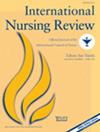Harnessing Generative AI in Nursing Informatics: A Theoretical Critique and Policy Innovation Perspective From Japan
Abstract
Aim
This article provides a theoretical critique and policy innovation perspective on integrating generative artificial intelligence (AI) into nursing informatics. It draws on a 2023 nationwide survey in Japan and established models, including the technology acceptance model and risk perception frameworks, to examine AI's transformative potential and its challenges.
Background
Rapid AI evolution is reshaping healthcare by enhancing clinical decision-making and efficiency. Generative AI shows promise in improving patient outcomes, yet its integration into nursing practice raises ethical, educational, and regulatory concerns. Nursing informatics now requires robust governance, ethical oversight, and updated educational frameworks.
Sources of Evidence
Evidence is derived from a 2023 survey by the Health and Global Policy Institute and a comprehensive literature review. Key studies (e.g., Nashwan et al. 2025; Booth et al. 2021) and foundational models (Davis 1989; Venkatesh et al. 2003) underpin the analysis.
Discussion
The findings suggest that while generative AI may enhance access to information and service quality, significant challenges—such as low digital literacy, liability issues, data accuracy, and privacy concerns—persist. A multidimensional strategy, incorporating targeted education, ethical governance, and continuous feedback from healthcare practitioners, is essential for effective integration.
Conclusion
Generative AI holds transformative promise for nursing informatics. However, its successful adoption depends on balancing innovation with comprehensive regulatory and educational strategies to mitigate associated risks.
Implications for Nursing Practice and Policy
Enhancing digital literacy, establishing clear guidelines for liability and data security, and fostering international collaboration are critical to the safe and effective integration of AI in nursing practice.

 求助内容:
求助内容: 应助结果提醒方式:
应助结果提醒方式:


